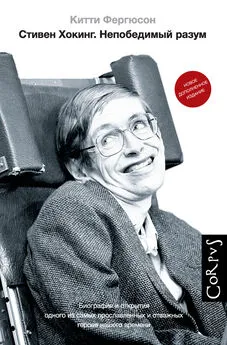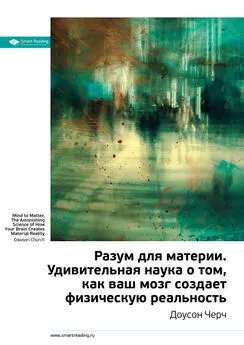Алекс Ликерман - Непобедимый разум. Наука о том, как противостоять трудностям и невзгодам
- Название:Непобедимый разум. Наука о том, как противостоять трудностям и невзгодам
- Автор:
- Жанр:
- Издательство:Манн Иванов Фербер
- Год:2014
- Город:Москва
- ISBN:978-5-00057-184-2
- Рейтинг:
- Избранное:Добавить в избранное
-
Отзывы:
-
Ваша оценка:
Алекс Ликерман - Непобедимый разум. Наука о том, как противостоять трудностям и невзгодам краткое содержание
Алекс Ликерман, практикующий врач и плодовитый писатель, предлагает несколько принципов, которые помогут стать выносливее и сильнее, и иллюстрирует их историями своих пациентов, сумевших благодаря им справиться со страданиями: увольнением, неизлечимой болезнью, излишним весом, зависимостью от наркотиков, отверженностью, утратой близких, паническим страхом и другими невзгодами.
На русском языке публикуется впервые.
Непобедимый разум. Наука о том, как противостоять трудностям и невзгодам - читать онлайн бесплатно полную версию (весь текст целиком)
Интервал:
Закладка:
66
Daishonin N. Reply to Kyo’o // The Writings of Nichiren Daishonin, Vol. 1. Japan: SokaGakkai, 1999. P. 412.
67
Ikeda D. Faith into Action. Los Angeles: World Tribune Press, 1999. P. 108.
68
Locke E. et al. Goal Setting and Task Performance: 1969–1980 // Psychological Bulletin, 1981. Vol. 90. P. 125–152.
69
Newall N. et al. Regret in Later Life: Exploring Relationships Between Regret Frequency, Secondary Interpretive Control Beliefs, and Health in Older Individuals // The International Journal of Aging and Human Development, 2009. Vol. 68. P. 261–288.
70
Trottier K., Polivy J., Herman C. P. Effects of Exposure to Unrealistic Promises About Dieting: Are Unrealistic Expectations About Dieting Inspirational? // International Journal of Eating Disorders, 2005. Vol. 37. P. 142–149.
71
Trottier K., Polivy J., Herman C. P. Effects of Exposure to Unrealistic Promises About Dieting: Are Unrealistic Expectations About Dieting Inspirational? // International Journal of Eating Disorders, 2005. Vol. 37. P. 142–149.
72
Locke E. et al. Goal Setting and Task Performance: 1969–1980 // Psychological Bulletin, 1981. Vol. 90. P. 125–152.
73
Barnes R., Tantleff-Dunn S. Food for Thought: Examining the Relationship Between Food Thought Suppression and Weight-Related Outcomes // Eating Behaviors, 2010. Vol. 11. P. 175–179.
74
Nordgren L., Chou E. The Push and Pull of Temptation: The Bidirectional Influence of Temptation on Self-Control // Psychological Science, 2011. P. 20. Vol. 1–5.
75
Baumeister R. et al. Ego Depletion: Is the Active Self a Limited Resource? // Journal of Personality and Social Psychology, 1998. Vol. 74. P. 1252–1265.
76
Gailliot M. Self-Control Relies on Glucose as a Limited Energy Source: Willpower Is More Than a Metaphor // Journal of Personality and Social Psychology, 2007. Vol. 92. P. 325–336.
77
Tice D. et al. Restoring the Self: Positive Affect Helps Improve Self-Regulation Following Ego Depletion // Journal of Experimental Social Psychology, 2007. Vol. 43. P. 379–384; Muraven M., Slessareva E. Mechanisms of Self-Control Failure: Motivation and Limited Resources // Personality and Social Psychology Bulletin, 2003. Vol. 29. P. 894–906.
78
Kurzban R. Does the Brain Consume Additional Glucose During Self-Control Tasks? // Evolutionary Psychology, 2011. Vol. 2. P. 244–259.
79
Mischel W., Ebbesen E. Attention in Delay of Gratification // Journal of Personality and Social Psychology, 1970. Vol. 16. P. 329–337.
80
Mischel W., Baker N. Cognitive Appraisals and Transformations in Notes 257 Delay Behavior // Journal of Personality and Social Psychology, 1975. Vol. 31. P. 254–261.
81
Vohs K. et al. Making Choices Impairs Subsequent Self-Control: a Limited-Resource Account of Decision Making, Self-Regulation, and Active Initiative // Journal of Personality and Social Psychology, 2008. Vol. 94. P. 883–898.
82
Дахигг Ч. Сила привычки. Почему мы живем и работаем именно так, а не иначе. М.: Карьера Пресс, 2012.
83
Lally P. et al. How Are Habits Formed: Modelling Habit Formation in the Real World // European Journal of Social Psychology, 2010. Vol. 40. P. 998–1009.
84
Lally P. et al. How Are Habits Formed: Modelling Habit Formation in the Real World // European Journal of Social Psychology, 2010. Vol. 40. P. 998–1009.
85
Achor S. The Happiness Advantage. New York: Crown Business, 2010. P. 154–156.
86
Wood W., Tam L., Witt M. Changing Circumstances, Disrupting Habits // Journal of Personality and Social Psychology, 2005. Vol. 88. P. 918–933.
87
Mischel W., Ebbesen E. Attention in Delay of Gratification // Journal of Personality and Social Psychology, 1970. Vol. 16. P. 329–337.
88
Kirby K. et al. Situations Occasioning Cocaine Use and Cocaine Abstinence Strategies // Addiction 1995. Vol. 90. P. 1241–1252.
89
Кинг С. Корпорация «Бросайте курить» // Корпорация «Бросайте курить»: сборник. М.: АСТ, 2000.
90
Daishonin N. Reply to Kyo’o // The Writings of Nichiren Daishonin, Vol. 1. Japan: SokaGakkai, 1999. P. 412.
91
Pelchat M. Food Addiction in Humans // The Journal of Nutrition, 2009. Vol. 139. P. 620–622.
92
Oudenhove L. et al. Fatty Acid-Induced Gut-Brain Signaling Attenuates Neural and Behavioral Effects of Sad Emotion in Humans // Journal of Clinical Investigation, 2011. Vol. 121. P. 3094–3099.
93
Fishbach A., Eyal T., Finklestein S. How Positive and Negative Feedback Motivate Goal Pursuit // Social and Personality Psychology Compass, 2010. Vol. 4. P. 517–530.
94
Punamaki R.-L. Can Ideological Commitment Protect Children’s Psychosocial Well-Being in Situations of Political Violence? // Child Development, 1996. Vol. 67. P. 55–69.
95
Daishonin N. The Three Obstacles and the Four Devils // The Writings of Nichiren Daishonin, Vol. 1. Japan: Soka Gakkai, 1999. P. 637.
96
Kraig R. et al. TNF-alpha and Microglial Hormetic Involvement in Neurological Health and Migraine // Dose-Response, 2010. Vol. 8. P. 389–413.
97
Arnold J. et al. Exploring Parental Grief: Combing Quantitative and Qualitative Measures // Archives of Psychiatric Nursing, 2005. Vol. 19. P. 245–255.
98
Франкл В. Человек в поисках смысла. М.: Прогресс, 1990.
99
McDonald M. The Nature of Epiphanic Experience // Journal of Humanistic Psychology, 2008. Vol. 48. P. 89–115.
100
Hirsch J. et al. Optimistic Explanatory Style as a Moderator of the Association Between Negative Life Events and Suicidal Ideation // Crisis, 2009. Vol. 30. P. 48–53.
101
Бах Р. Иллюзии. Киев: София, 2008.
102
Ho S. et al. Relationships Between Explanatory Styles, Posttraumatic Growth and Posttraumatic Stress Disorder Symptoms among Chinese Breast Cancer Patients // Psychology and Health, 2011. Vol. 26. P. 269–285.
103
Hirsch J. et al. Optimistic Explanatory Style as a Moderator of the Association Between Negative Life Events and Suicidal Ideation // Crisis, 2009. Vol. 30. P. 48–53.
104
Seligman M. et al. Explanatory Style as a Mechanism of Disappointing Athletic Performance // Psychological Science, 1990. Vol. 1. P. 143–146.
105
Gordon R. Attributional Style and Athletic Performance: Strategic Optimism and Defensive Pessimism // Psychology of Sport and Exercise, 2008. Vol. 9. P. 336–350.
106
Gordon R. Attributional Style and Athletic Performance: Strategic Optimism and Defensive Pessimism // Psychology of Sport and Exercise, 2008. Vol. 9. P. 336–350.
107
Moore M., Fresco D. The Relationship of Explanatory Flexibility to Explanatory Style // Behavior Therapy, 2007. Vol. 38. P. 325–332.
108
Fresco D., Rytwinski N., Craighead L. Explanatory Flexibility and Negative Life Events Interact to Predict Depression Symptoms // Journal of Social and Clinical Psychology, 2007. Vol. 26. P. 595–608.
109
Fresco D. et al. Self-Administered Optimism Training: Mechanisms of Change in a Minimally Supervised Psychoeducational Intervention // Journal of Cognitive Psychotherapy, 2009. Vol. 23. P. 350–367.
110
Miserandino M. Attributional Retraining as a Method of Improving Athletic Performance // Journal of Sport Behavior, 1998. Vol. 21. P. 286–297.
111
Le Foll D., Rascle O., Higgens N. C. Attributional Feedback-Induced Changes in Functional and Dysfunctional Attributions, Expectations of Success, Hopefulness, and Short-Term Persistence in a Novel Sport // Psychology of Sport and Exercise, 2008. Vol. 9. P. 77–101.
112
Le Foll D., Rascle O., Higgens N. C. Attributional Feedback-Induced Changes in Functional and Dysfunctional Attributions, Expectations of Success, Hopefulness, and Short-Term Persistence in a Novel Sport // Psychology of Sport and Exercise, 2008. Vol. 9. P. 77–101.
113
Douglas D., Anisman H. Helplessness or Expectation Incongruency: Effects of Aversive Stimulation on Subsequent Performance // Journal of Experimental Psychology, 1975. Vol. 1. P. 411–417.
114
Quinn J. M. et al. Can’t Control Yourself? Monitor Those Bad Habits // Personality and Social Psychology Bulletin, 2010. Vol. 36. P. 499–511.
115
Дахигг Ч. Сила привычки. Почему мы живем и работаем именно так, а не иначе. М.: Карьера Пресс, 2012.
116
Дахигг Ч. Сила привычки. Почему мы живем и работаем именно так, а не иначе. М.: Карьера Пресс, 2012.
117
Smith D. et al. Happily Hopeless: Adaptation to a Permanent, but Not to a Temporary, Disability // Health Psychology, 2009. Vol. 28. P. 787–791.
118
Daishonin N. Letter from Sado // The Writings of Nichiren Daishonin, Vol. 1. Japan: Soka Gakkai, 1999. P. 302.
119
Stiegelis H. et al. Cognitive Adaptation: a Comparison of Cancer Patients and Healthy References // British Journal of Health Psychology, 2003. Vol. 8. P. 303–318.
120
Sharot T., Shiner T., Dolan R. Experience and Choice Shape Expected Aversive Outcomes // The Journal of Neuroscience, 2010. Vol. 30. P. 9209–9215.
121
Wilson T. et al. Preferences as Expectation-Driven Inferences: Effects of Affective Expectations on Affective Experiences // Journal of Personality and Social Psychology, 1989. Vol. 56. P. 519–530.
122
Geers A., Lassiter G. D. Effects of Affective Expectations on Affective Experience: The Moderating Role of Optimism-Pessimism // Personality and Social Psychology Bulletin, 2002. Vol. 28. P. 1026–1039.
123
Suls J., Wan C. Effects of Sensory and Procedural on Coping with Stressful Medical Procedures and Pain: a Meta-Analysis // Journal of Consulting and Clinical Psychology, 1989. Vol. 57. P. 372–379.
124
Douglas D., Anisman H. Helplessness or Expectation Incongruency: Effects of Aversive Stimulation on Subsequent Performance // Journal of Experimental Psychology, 1975. Vol. 1. P. 411–417.
Читать дальшеИнтервал:
Закладка:



![Рейчел Херц - Почему мы едим то, что едим [Наука о том, как наш мозг диктует нам, что есть]](/books/1061252/rejchel-herc-pochemu-my-edim-to-chto-edim-nauka-o-t.webp)






